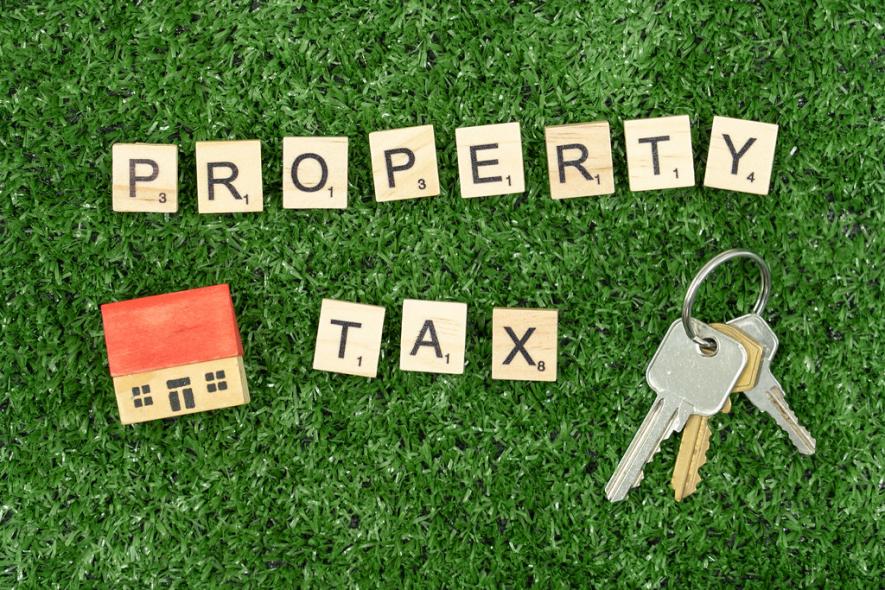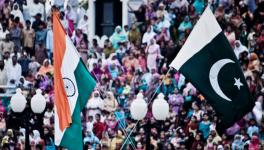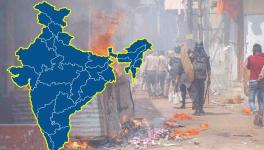New Property Tax Regime in J&K is Inherently Flawed

Representational Image. Image Courtesy: Flickr
The Union territory administration of Jammu and Kashmir (J&K) notified rules for levying property tax in towns and cities in the region. The lieutenant governor (LG) and urban development officers leave no stone unturned in convincing the people that "this is a progressive tax" and the values are abysmally low. Hence, there will be hardly any burden on the people. Comparative tax collection rates of Shimla, Ambala, Dehradun etc., are also shared to build a narrative that the people of J&K residing in towns and cities will pay much less than other urban centres.
The people of the region and the major political parties, including the Gupkar Alliance, have strongly condemned the decision of the UT administration, saying that this decision undermines the spirit of the constitution.
PROCESS IS THE MAIN PROBLEM
The outcry is not with the property tax per se but with the unconstitutional manner in which it has been imposed. The much-hyped propaganda that Kashmiris do not pay any tax and why they should not be paying the property tax when most of the urban centres in the country are doing so has a connotation matching the current ruling dispensation's intention. This comes from the line of thinking that the region was integrated with the rest of India only after the abrogation of Article 370.
Nothing can be said about it except-"true lies". How is it possible that successive regimes did not tax the region's people to run their administrations? The history of municipal administration is quite old in J&K.
The Dogra rulers established municipal governance in both Jammu and Srinagar in 1886. Even before the 74th constitutional amendment came into being in 1994, municipal councils were established in the region. In 2003, the J&K state legislature made the two municipal councils into corporations. Like in all urban centres, the primary source was from octroi, even in the valley.
The collection of property tax is also quite old. The property tax was levied under the J&K urban immovable property tax rules of 1962. In 1997, property tax was levied on individual property owners with a minimum rental income of Rs 500/month. Paying property tax as propagated elsewhere in the country is not new to the region but rather very old.
INHERENTLY FLAWED
Therefore, why is there so much noise this time about a Central farman (order) from the Union home ministry ruling the region through its administration? The ire of the people is legitimate and genuine. As Henry Lefebvre points out, it is like reclaiming the right to the city. According to Lefebvre, the French philosopher, the right to the city "manifests itself as a superior form of rights: the right to freedom, to individualisation in socialisation, to habitat and to inhabit."
The basic flaw in the decision is "who decides for whom". There is a basic violation of the Constitution in two folds.
Firstly, urban development is a state subject, and the respective states are supposed to take a call on how urbanisation must unfold. The state governments must consider the hard reality of urbanisation and accordingly build their urban designs and plans.
However, in recent decades, there has been a strong central intervention in this area. The successive Central governments, particularly after 2014, have linked the central flow of money to some fundamental changes in the structures of urban governance.
Some of them are good. Take, for example, the dual accounting system, which is very much required. But most of the decisions taken at the local levels are structured in the process of urban reforms and the smart city model, where the urban governance structure of the council has been taken over by the bureaucrat-driven business models. The current push for levying the new property tax format is also linked to availing the SBM 2.0 grants. The SBM 2.0 grants are linked to property tax reforms. These are not sustainable ways of urbanisation in the country.
In J&K, the liberty of urban planning at the state level has been robbed and usurped by the Centre. The elected state legislature should take a call on the form in which tax collection is to be made in the urban centres.
The second major flaw is the violation of the 74th Constitutional amendment. The fundamental spirit of this amendment is that the cities should plan for themselves. Hence, when the LG or other officers hold press conferences and say that the tax collection will be meagre, it is just a subjugation of the principles of the 74th amendment.
When the new format of property tax was to be introduced in Shimla, where I served as the deputy mayor from 2012-17, even the state government could not decide how to collect the tax.
It was after a long debate within the council and with the people that we deliberated upon the subject. Every value of the property tax was decided by the elected council, i.e., the Shimla Municipal Corporation—no wonder the tax collections surged phenomenally high.
This space of elected councils deciding for themselves has also been robbed.
WHY VALUE DECISION IS IMPORTANT
When LG says that Shimla collects more per capita tax than Srinagar, he is true. But the hidden fact is that the tax value was not decided by the state's chief minister or governor. The council decided on these values. And in the council, we knew which area and space had a larger capacity to pay and which areas should be exempted. It is pretty interesting to note that in Shimla, even the designated and designated slums are paying the property tax. They were the first to demand to levy property tax for apparent reasons.
The value is also essential because this is linked with the SDGs (Sustainable Development Goals). What about land use change, likewise how much concession should be given to the green spaces ensuring the lungs of the city to develop further. Similarly, the water bodies should be kept in mind; this can only be done when it is highly decentralised and democratised.
In the absence of this process of "people deciding for themselves", the introduction of property tax is another onslaught of the Central government on the democratic rights of the J&K residents.
The writer is the former deputy mayor of Shimla, Himachal Pradesh. The views are personal.
Get the latest reports & analysis with people's perspective on Protests, movements & deep analytical videos, discussions of the current affairs in your Telegram app. Subscribe to NewsClick's Telegram channel & get Real-Time updates on stories, as they get published on our website.
























